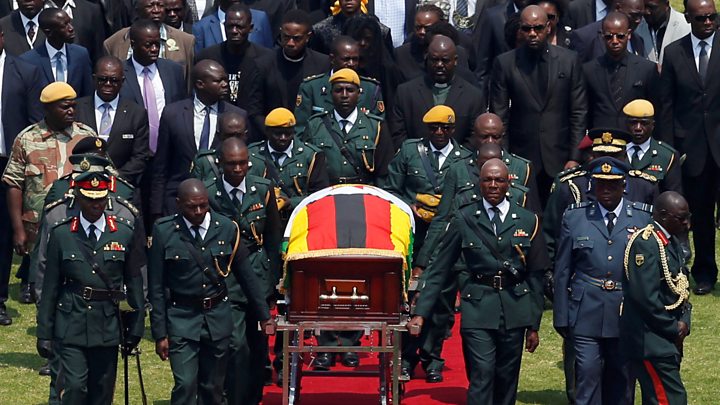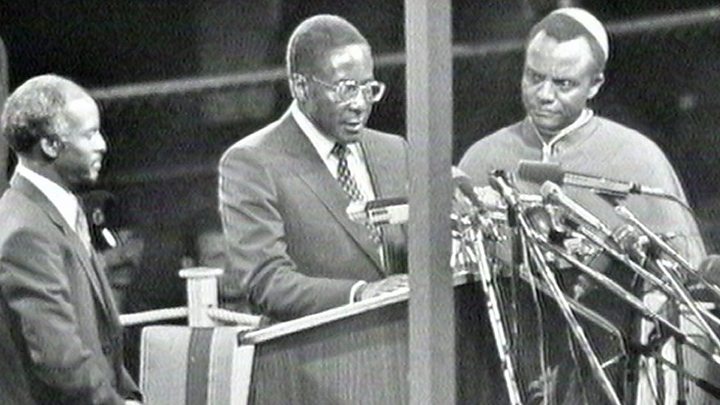Family wins tussle over Mugabe’s resting place
The body of Robert Mugabe will be buried in his home town, following a final twist in a row over the former Zimbabwean leader’s resting place.
Mugabe died this month aged 95 and a funeral was held in the capital Harare.
The government had resisted his family’s wish for him to be buried in his home region of Zvimba, deciding that he should lay in Heroes Acre – a national monument and burial ground.
The family eventually consented, but on Thursday the government backtracked.
It was not immediately clear what prompted the late change in plans. The Mugabe family had appeared content with the burial at Heroes Acre, after it was agreed that a mausoleum would be built for the former leader.
In a statement published on Thursday, Information Minister Nick Mangwana said the change was in line with policy “to respect the wishes of families of deceased heroes”.
Update on the burial arrangements of the late former President R.G Mugabe pic.twitter.com/cAS0lFyl33
End of Twitter post by @InfoMinZW
Mugabe died in Singapore while receiving treatment for cancer, and his body was flown back to Zimbabwe.
In the wake of his death, the family publicly complained that they had not been consulted about arrangements for the state funeral.
In a statement, they accused the government of coercion, and said plans to bury Mugabe at the monument were “contrary to [Mugabe’s] wishes”.
The statement said that one of his final requests was for his wife, Grace Mugabe, to never leave Mr Mugabe’s coffin during the funeral and up until the point when he was buried.
His family is said to be bitter over his being ousted by his former ally, President Mnangagwa, two years ago – a resentment that may have contributed to the clash over his burial place. Mr Mnangagwa had pushed for it to be Heroes Acre.
Mugabe, a former guerrilla leader, was Zimbabwe’s first leader after the country became independent in 1980.
During his early years, he was praised for broadening access to health and education for the black majority.
But his later rule was marked by economic ruin and the violent repression of his political opponents.
He held on to power for almost four decades before being overthrown in the 2017 coup and replaced by Mr Mnangagwa.
Source: Read Full Article




